

You could have Horse Health Anxiety (HHA – I just made this acronym up, by the way).
Health anxiety is a well-described phenomenon in human medicine. It’s a problem that causes people to worry even when there’s not anything to worry about. It’s the same with HHA. Even if their horse isn’t showing any clinical signs, people with HHA find something to worry about.
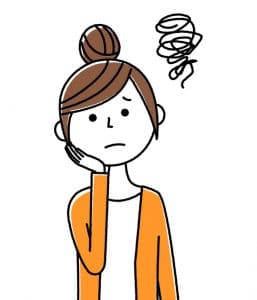
In human medicine, some experts believe that a significant minority of the population (up to 25% by some estimates – fewer by others), is affected by anxiety about their health. In human medicine, men and women are affected equally. I don’t know any statistics that have been published about HHA, but those numbers sound about right to me.
HORSES DO HAVE HEALTH PROBLEMS
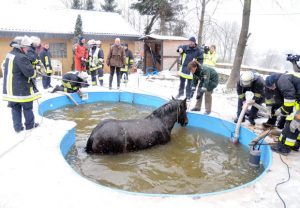
A real problem
Being concerned about, or interested in, your horse’s health, is not the same thing as having HHA. I think that it’s good to pay attention to your horse’s health. It’s normal to wonder if a change in your horse’s behavior could be due to some health problem. Or, if your horse has had a real problem diagnosed in the past, it’s completely normal to be worried if you see the same clinical signs coming back.
Still, there’s a difference – at least from the aspect of the horse’s health – between a person who is constantly worried about their healthy horse and a person who is worried about some unusual clinical sign. However, even worries about a real condition can become a problem.
Here’s an example. About two years ago I was asked to give a fourth opinion on a 20-year-old Warmblood horse. She had been through the entire diagnostic gamut: MRI’s and bone scans, ultrasound and X-rays of most every bone in the horse’s body. She wasn’t moving 100% sound and all of the diagnostic tests and all of the expert opinions confirmed that the horse should never be ridden again (I know because I saw the reports).
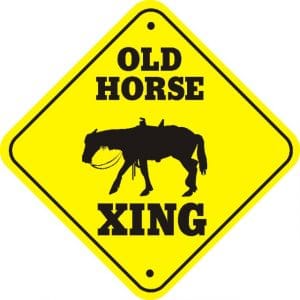
The owner, who obviously cared about her horse enough to float the budget of a few small countries, said, “I’d like her to be able to give lessons to kids.”
“Why don’t you give it a try?” I said.
The owner, furrowing her brow, responded, “But what about all of the reports?”
I said, “Don’t let her read them.”
Today, two years later, the old girl regularly and happily gives lessons to kids in a riding program. She doesn’t go very fast or for very long, and it helps her to get a pain-relieving drug from time to time. But she’s got a job, she’s the apple of the eyes of any number of kids, and she’s, well, happy (at least as far as anyone can tell).
Horse owners with HHA often look at variations in normal horse behavior or physical signs and worry that they’re more serious. So, for example, the horse takes a funny step. Instead of putting him up and coming back to check on him on another day, they might worry that the horse has a shoulder problem, or arthritis, or an infection. It can be hard to tolerate uncertainty, even for a day. However, if you worry about every little thing, you may end up thinking that every little change from normal is serious. Like this kid, from the old movie, “Kindergarten Cop.”
DO YOU HAVE HHA?
Not that I encourage self-diagnosis, but here are a few signs that might indicate that you have HHA.
- If your horse is fine, but you still worry that he has a problem, you might have HHA
- If your veterinarian tells you that your horse is fine, but you’re still nervous, you might have HHA
- If you spend lots of time on internet chat rooms, doing searches for rare conditions, or you’ve joined a support group, you might have HHA
- If you read a story about a new horse disease in a magazine, and then you start worrying that your horse might have it, even if he’s been fine prior to reading the magazine, you might have HHA
- If you’re so worried about your horse’s health that it’s getting in the way of having fun with your horse, you might have HHA
- If you call your veterinarian, or text your farrier, or engage with some self-proclaimed specialist regularly, “Just in case,” or for “maintenance,” for “support” or for some other undefined reason, you might have HHA
TESTING DOESN’T HELP

There’s another side to the HHA coin, too. Some people who are worried about their horses try to deal with their condition by avoiding their horse’s problems altogether. Of course, that’s not good – there are risks to your horse’s health by not attending to real problems. It’s OK to worry a little about your horses – just don’t let that worry be consuming.
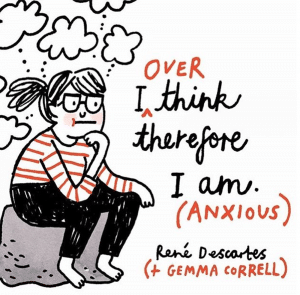
I think HHA takes from the fun of owning horses. And the thing is, to me, the horse industry seems to be bound and determined to perpetuate the problem. As awful as HHA is for horse owners, it seems to me that lots of folks are doing everything they can to promote it. Whether it be supplement companies telling you that you need to feed this or that (generally untested) substance to “optimize” your horse’s health, specialists telling you that the horse’s teeth, joints, spine, or feet are in need of constant attention, or even just eager horse owners eagerly recounting the latest story that they may have misunderstood, there’s a nonstop anxiety-promoting roar going around the horse world. There’s profit in such an approach, of course. Still, that’s not the way that I like to do business.
TREATING HHA
Fortunately, I think that HHA is a treatable problem. I’m here to help. To help reduce HHA:
- Adjust your health rules and assumptions about your horse. Remember, they came up with the term, “As healthy as a horse,” for a reason!
- Let go of your focus on worrisome symptoms. Each and every little thing that your horse does that strikes you as unusual may be just a variation of normal for that day. If there are more things right than wrong, then the “wrong” thing may not be that big a deal.
- Re-evaluate any unhelpful health related thoughts you might have about your horse. Try to avoid doing too many things out of concern for something that “might” happen to your horse.
- Reduce the number of things that you might do to seek reassurance (exams, tests, etc.)
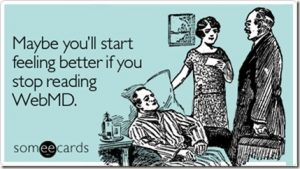
It’s OK to worry and fuss over your horse. But when you become preoccupied with something you tend to to pay too much attention to it. Constantly worrying about each and every thing about horses makes a people to look for irrelevant things that they might otherwise ignore. When people start worrying about each and every little thing, horse owning starts to become less fun, and usually a lot more expensive.
Whether or not your horse has real symptoms or an actual medical condition is not the main issue when it comes to HHA. The issue is how you a person responds to his or her horse. If horse owning is associated with excessive and persistent worrying, checking and rechecking, constantly seeking reassurance, or avoiding your horse altogether, then HHA might just be a problem. Cue Bobby McFerrin.

